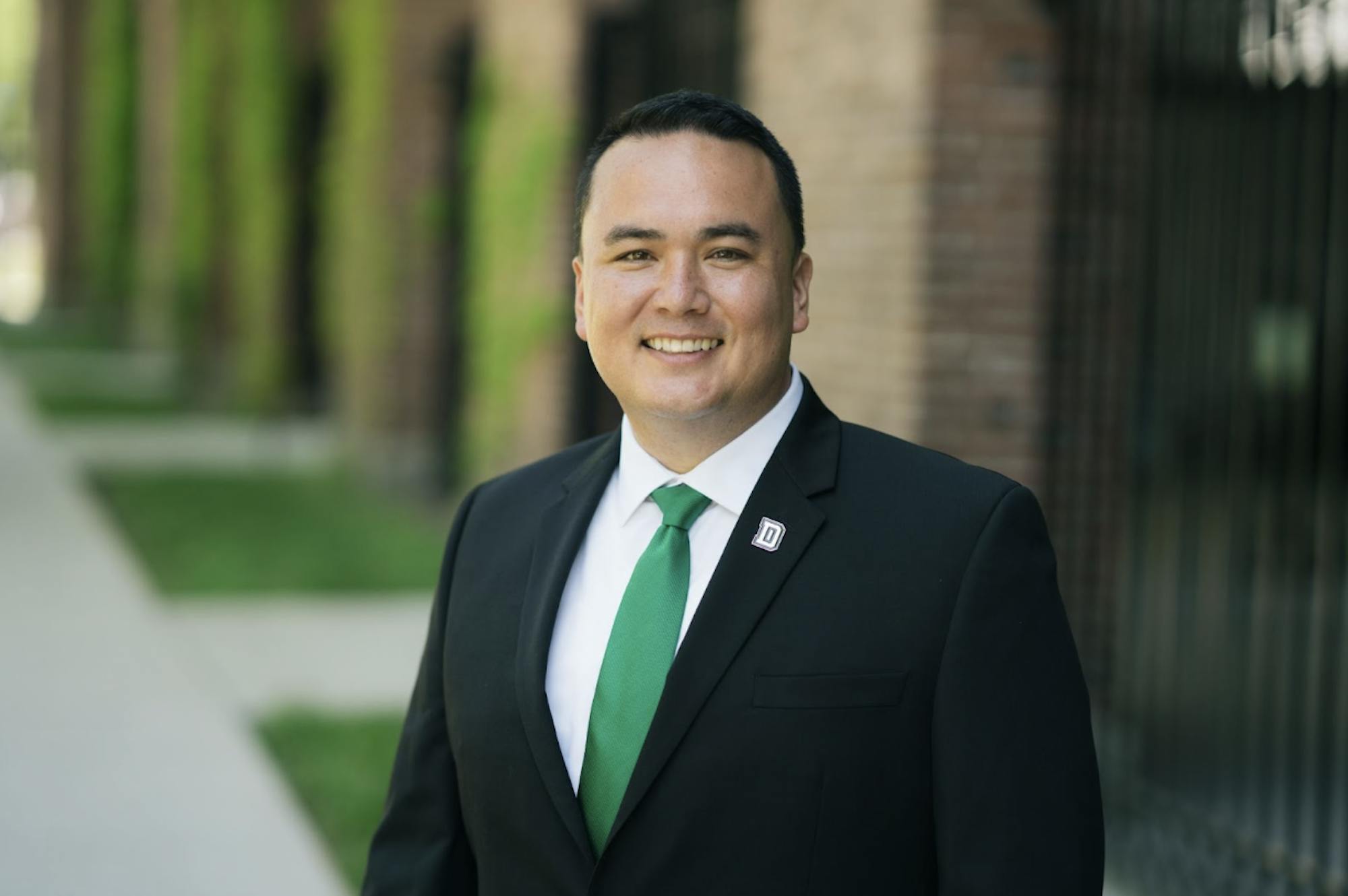How have you been adapting to the Dartmouth community so far?
MH: Overall, I’ve been doing a lot of listening and learning as I spend time with my fellow teammates in the athletics department and head coaches. There are certainly a lot of people who care about Dartmouth athletics and really want to elevate the College, who have reached out.I’ve been really deliberate in prioritizing those conversations because my belief is that you seek first to understand. I’m most excited to meet our student-athletes, since I haven’t had the opportunity because of my start date. I’m really looking forward to the fall kicking off here in a few weeks with pre-season practices.
Thinking longer term, what do you see as some of the fundamental values of Dartmouth athletics, and what are some ways you will work toward maintaining these values?
MH: Dartmouth is a very value-driven institution. The sense of community and tradition is so strong. One of my favorite questions to ask the few students that I have been able to meet is why they chose Dartmouth. What I hear is the ability to grow as a person here, the sense of community that they felt during a visit — they talk about the collaborative nature and the spirit of this place.What’s also really neat is that, when I’ve asked folks who are nearing the end of their time here: “Has Dartmouth lived up to what you hoped it would?” Thus far they’ve said Dartmouth has exceeded what they hoped. That tells me that there’s a special heart and soul to the place, and that’s something I hope to be a caretaker of in this role as director of athletics and recreation.
In 2021, spectator restrictions were lifted and there were fewer game cancellations due to the COVID-19 pandemic. How will you facilitate the healing and rebuilding of programs that suffered due to COVID-19?
MH: First of all, in my short time here in the listening and learning sessions, it’s clear that Dartmouth has done a phenomenal job of managing the situation that was caused by COVID.
In terms of how I plan to facilitate the healing of programs, I go back to what I said earlier, and I ask myself, “How do I come alongside head coaches, and what does that look like?” It’s a little bit different in each case because there are 35 different sports here, not to mention the recreation side, which is so important, too, and making sure that the resources are there for Dartmouth students given the new conditions.
One of your predecessor Peter Roby’s tenets was coaching consistency, as he only made hires over his tenure and did not let coaches go. Do you intend to have that same long leash with coaches?
MH: Again, my mentality is seek first to understand where we’re at. One great thing that I’ll note is that president Phil Hanlon has been incredibly generous in offering the opportunity to work with Roby as an advisor for the next year. Roby is somebody that I lean on heavily and who I trust completely. We actually have a previous relationship from the NCAA pathway program, and we built great rapport then. Overall, I think we have a phenomenal group of coaches here. I haven’t met all of them yet because of recruiting — their calendars are all over the place and I certainly don’t want to be an obstacle to their progress. I’m looking forward to having conversations with them, and I really see my job as a partner to them who is identifying ways to clear the path, so they can be the coaches and educators that they intend to be.
A year ago now, Dartmouth announced its goal of reducing student-athlete admissions by 10% for future incoming classes. What are your thoughts on such a reduction?
MH: I'm still learning all the factors that went into that, but I have the good fortune to report directly to President Hanlon who has been an incredible mentor through this. I certainly support any institutional decision like that, and I seek to understand the context around it, as well as the potential short-term and long-term impacts of those decisions.
In the wake of a threatened class action lawsuit following the elimination of five varsity programs, the athletic department released a Gender Equity Plan in March. What steps will you take to continue building on this plan?
MH: That’s what I have spent the biggest percentage of my time on — understanding and working alongside others to ensure that this Gender Equity Plan is implemented in full. We have put some folks in place to make sure that this isn’t just a document that sits in a drawer somewhere, but that it is a living and breathing document. We will both follow the letter of it and the spirit of it to make sure that people have equitable access to these opportunities.
In your administrative role, you are somewhat removed from being in the midst of competition like a coach — how much do you intend to bridge the gap to have a more direct influence on Dartmouth’s athletes and teams?
MH: That’s important to me because I came up through student-athlete development, and there were many times where I was the lone advisor for a group of student athletes. I was the one meeting the pizza delivery person, setting out all the tables and making sure the agendas were printed — that’s ultimately why I got into this business. To the extent that my schedule allows, I will be present at practices and sporting events that we’re hosting, just to make sure that I never lose sight of why we do what we do.
This interview has been edited and condensed for clarity and length.




